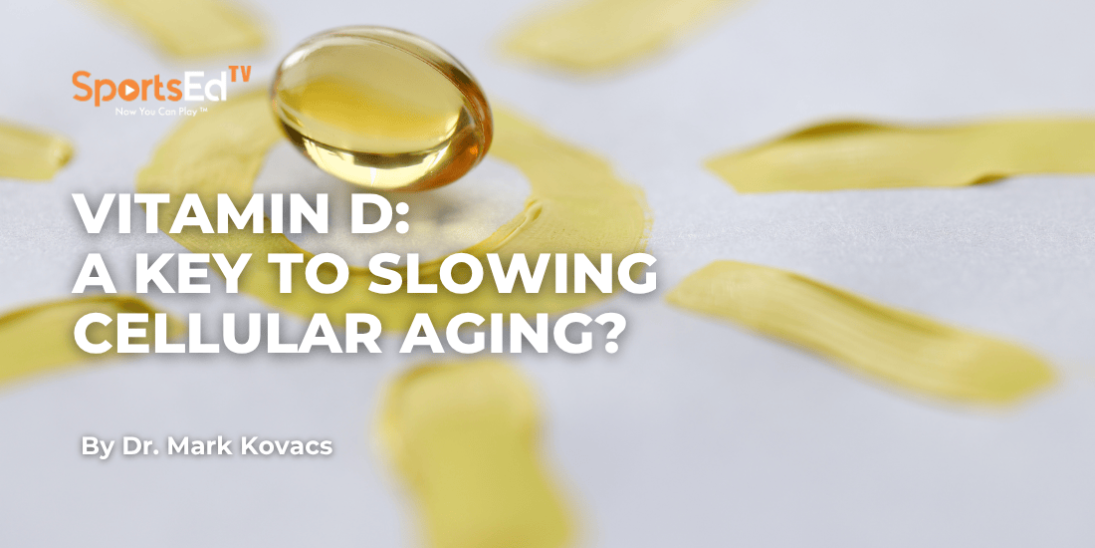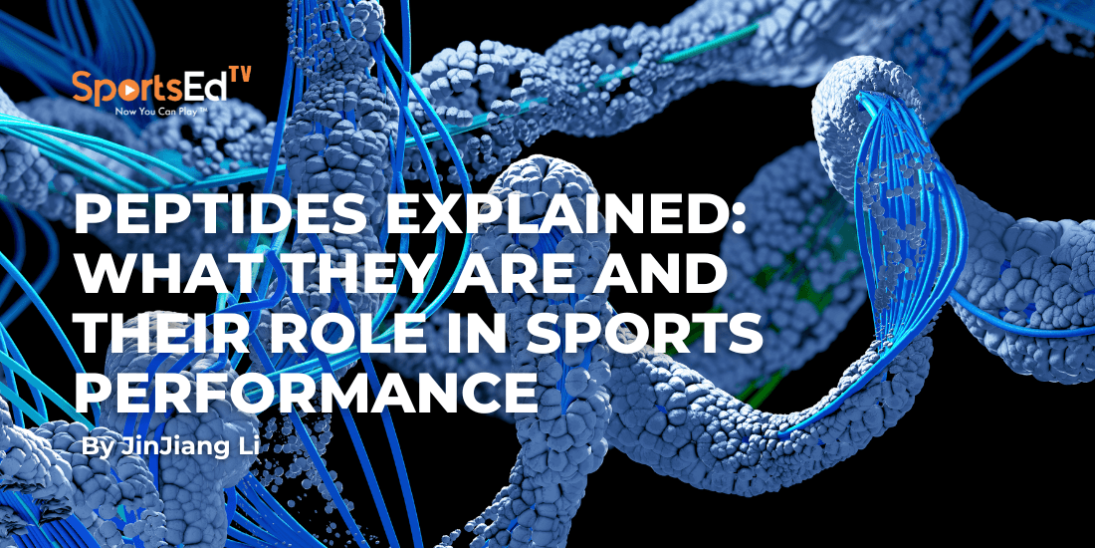Health
Welcome and thanks for visiting...

7 Ways to Improve Athletic Performance with a DNA Test

As an athlete, you’re always looking to find ways to improve your performance! It’s natural, right? We all love winning and progressing.
So what if you could have a diet plan, a way of improving recovery, and a method of boosting immunity completely custom to you? Sounds too good to be true!
As a DNA Integrated Nutrition coach who inserts genetic health insights into the programs of my clients, I want to share with you 7 ways you can improve your athletic performance by using a DNA test:
- Avoid micronutrient deficiencies
Vitamin and mineral deficiencies can show their face in many ways. From weakness and fatigue to hormonal imbalances and even a weakened immune system, being deficient in just one of these micronutrients can have a huge impact on athletic performance!
Whilst a varied and balanced diet will help to reduce these risks, it’s very easy to “miss something” especially if your body doesn’t absorb a specific nutrient very well!
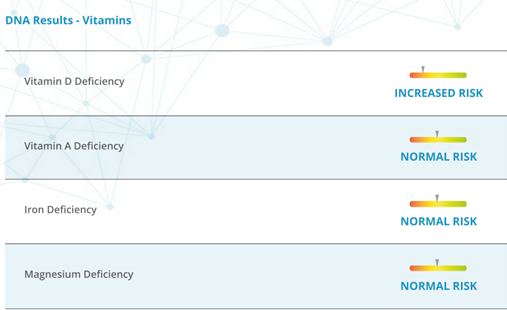
For example, my body struggles to process and absorb vitamin D and selenium efficiently. This gives me an increased risk of being deficient, which could very easily impact my performance, immunity, recovery, and overall mood!
By understanding your genetic ability to absorb different nutrients, you can quickly apply nutrigenomic interventions to account for these risks and ensure your performance stays optimal!
- Improve your sleep
We all know how important sleep is for boosting not only athletic performance but also managing mood, stress, hunger, and focus!
Genetically, we have varying ability to process caffeine. For example, I had spent years drinking cup after cup of green tea to get me through the afternoon, not realising the detriment it was causing to my sleep quality!
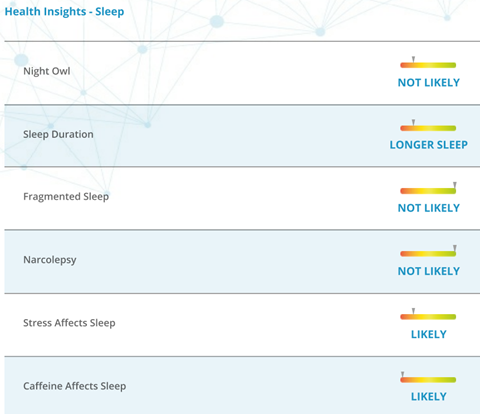
We can also understand what sleep duration our genes favour, which can be a vital insight to improving athletic performance.
And finally, we can understand the impact stress has on our sleep. Implementing a simple pre-sleep mindfulness routine can help to improve your athletic performance by allowing you more, high quality sleep each night.
- Custom recovery strategy
We all recover at different rates and respond uniquely to exercise stressors. So by understanding your genetics, you can create a unique recovery strategy based on data you cannot google!
We can understand your genetic soft-tissue inflammatory response which impacts your recovery. For example, someone with increased inflammation may want to reduce pro-inflammatory fatty acids such as omega 6 and increase intake of omega 3s instead!
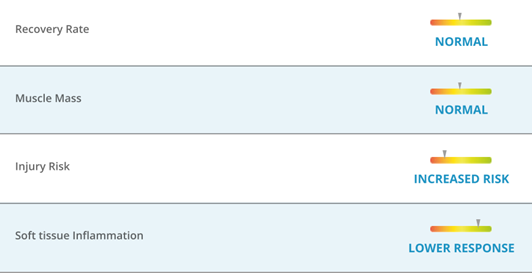
- Reduce “downtime”
If you could reduce the number of times you got ill each year, how many more weeks of quality training would that give you?
Training hard for your chosen sport can be extremely taxing on your immune system, so by understanding which nutrients are particularly effective at boosting your immunity, you can very quickly reduce your risks of illness!
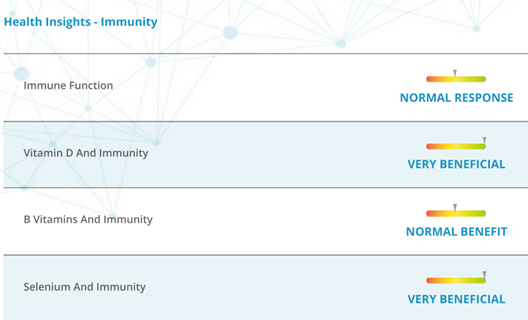
- Create an optimal nutrition plan based on your genetics
Perhaps you’ve tried ‘higher carb, lower fat’ when trying to cut weight or maybe you’ve gone for the ketogenic approach. Either way, you’re still shooting in the dark. But with a DNA test, the guessing game is finally over!
By understanding your body's ability to process different macronutrients (such as protein, carbs, and fats), you can optimise your energy levels, whilst making it easier to manage your bodyweight! Some of us are more suited to higher carbohydrate diets, whilst others may respond better to high-quality sources of fats!
Your DNA can also tell you if certain supplements are likely to be of benefit to you. For example, many pre-workout supplements include creatine, arginine, and BCAAs. But what if, based on your genetics, you could skip the arginine and double up on BCAAs?
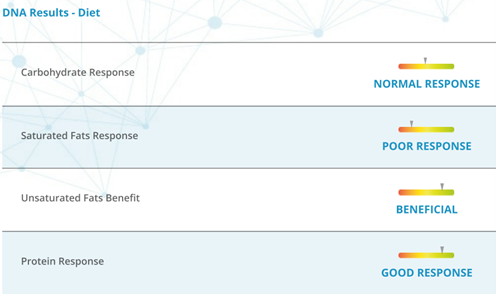
- Reducing the chance of injury
As you’re probably realising by now, we are all unique in our potential risks, advantages, and disadvantages. And this applies to injury risk too!
By understanding where our genetic variants may not benefit us, we can do one of 2 things:
We can take proactive measures to reduce this risk such as warming up and cooling down effectively, placing extra focus on technique where applicable, etc; or we could simply choose a sport that doesn’t put us at an increased risk of injury!
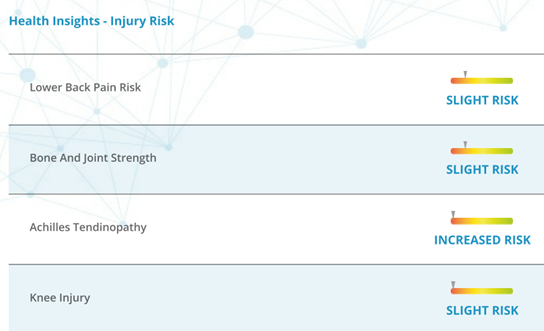
For example, based on my results, I’m not very suited to long-distance running due to my increased risk of achilles tendinopathy or my knee risk. But what I can do is take proactive measures to improve the strength of my lower back and connective tissue around my joints by consuming adequate collagen and vitamin C, and focus on resistance training.
- Play the game you’re most genetically gifted at
We all have advantages and disadvantages when it comes to our various physical traits such as muscle power, muscle stamina, etc. These variances may allow us to perform more optimally under certain conditions such as playing certain sports or doing certain types of activity.
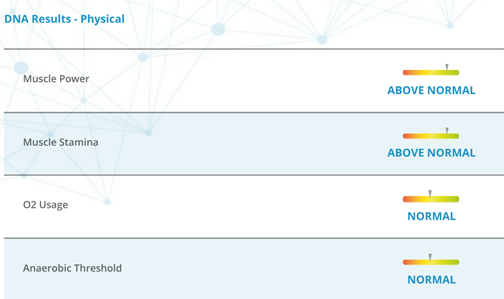
For example, my muscle power is above normal, so an activity like weightlifting, especially focused on the lower rep ranges, is something I’m genetically more suited towards.
I want to mention here that whilst being genetically “above normal” or even “gifted”, may make progress a little easier for you than others, the crucial element is still consistent training. Without this, your genetic advantages won’t play out!
Got any questions or want to learn more about a DNA integrated approach?
Connect and drop me a message on LinkedIn or check out my website below:
https://www.linkedin.com/in/alexhallnutritioncoach/
https://www.nutrition-al.co.uk/



